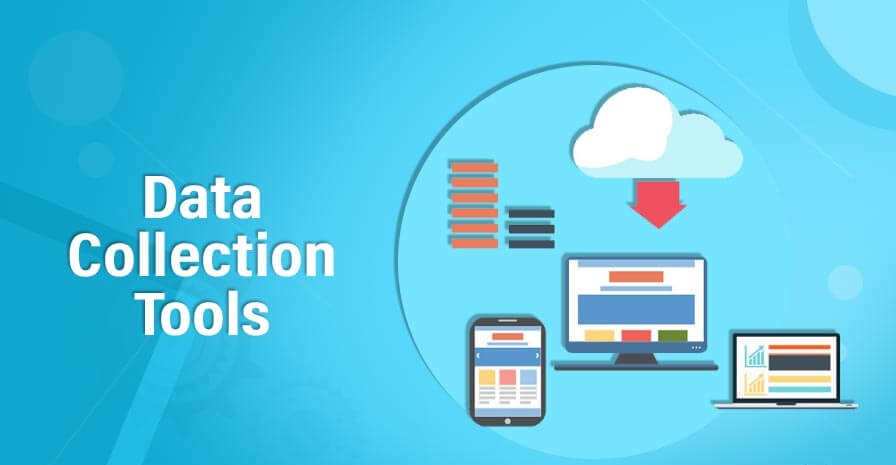Data Collection: Best Practices and Tools
 Shivanshi Singh
Shivanshi Singh
Introduction
Data collection is a crucial step in any data science project, as the quality and accuracy of data directly impact the outcomes of data analysis, modeling, and decision-making. Efficient and accurate data collection ensures that the data gathered is relevant, reliable, and ready for processing.
This article explores best practices and tools for data collection to help data scientists and researchers gather high-quality data.
Best Practices for Data Collection
Define Clear Objectives
Objective Setting: Before collecting data, clearly define the goals and objectives of your project. Understand what questions you want to answer and what data is necessary to achieve these goals.
Relevance: Ensure that the data you plan to collect is relevant to your objectives and will contribute to meaningful insights.
Choose the Right Data Collection Method
Surveys and Questionnaires: Useful for gathering large amounts of data from a specific population. Ensure questions are clear, unbiased, and designed to elicit useful responses.
Interviews: Provide in-depth information and insights. Use open-ended questions to gather detailed responses.
Observation: Ideal for collecting data on behavior, events, or processes as they occur naturally.
Existing Data: Leverage existing datasets, such as government reports, industry publications, or previous research, to save time and resources.
Ensure Data Quality
Accuracy: Verify that the data collected is correct and free from errors. Cross-check with multiple sources if necessary.
Consistency: Use standardized data collection methods and tools to ensure consistency across different datasets.
Completeness: Ensure that all necessary data points are collected, avoiding gaps that could impact analysis.
Ethical Considerations
Informed Consent: Ensure participants are fully aware of the purpose of the data collection and have consented to participate.
Privacy and Confidentiality: Protect the privacy of participants and keep their data confidential. Follow relevant data protection regulations and guidelines.
Data Storage and Management
Organized Storage: Store data in a well-organized manner, using a clear and logical structure. This facilitates easy retrieval and analysis.
Backup: Regularly back up data to prevent loss due to technical failures or other issues.
Tools for Data Collection
Survey Tools
Google Forms: A free and user-friendly tool for creating and distributing surveys. Offers various question types and response collection options.
SurveyMonkey: A versatile tool with advanced features for designing surveys, analyzing responses, and generating reports.
Interview and Observation Tools
Recording Devices: Use high-quality audio or video recording devices to capture interviews or observational data accurately.
Transcription Software: Tools like Otter.ai or Rev can help transcribe recorded interviews, saving time and effort.
Data Management Tools
Microsoft Excel: Widely used for data entry, organization, and basic analysis. Useful for small to medium-sized datasets.
Google Sheets: An online alternative to Excel that offers real-time collaboration and cloud storage.
SQL Databases: For larger datasets, SQL databases like MySQL or PostgreSQL provide robust data management and querying capabilities.
Web Scraping Tools
Beautiful Soup: A Python library for extracting data from HTML and XML documents. Ideal for web scraping tasks.
Scrapy: An open-source web crawling framework for Python, designed for large-scale web scraping projects.
APIs
Public APIs: Many organizations provide APIs to access their data. Examples include Twitter API, Google Maps API, and OpenWeatherMap API.
Custom APIs: Develop custom APIs to access specific data from your own or partner organizations' databases.
Conclusion
Efficient and accurate data collection is fundamental to the success of any data science project. By following best practices and utilizing appropriate tools, researchers and data scientists can gather high-quality data that leads to reliable and actionable insights. Always ensure that data collection methods align with your project objectives, prioritize data quality, and adhere to ethical standards to achieve the best results.
For those looking to enhance their skills in these areas, a data analytics course in Delhi, Noida, Gurgaon and other cities in India provides valuable training on best practices for data collection and analysis, equipping you with the knowledge needed for effective data management and insightful decision-making.
Subscribe to my newsletter
Read articles from Shivanshi Singh directly inside your inbox. Subscribe to the newsletter, and don't miss out.
Written by

Shivanshi Singh
Shivanshi Singh
I am a Digital Marketer and Content Marketing Specialist, I enjoy technical and non-technical writing. I enjoy learning something new. My passion and urge is to gain new insights into lifestyle, Education, and technology.